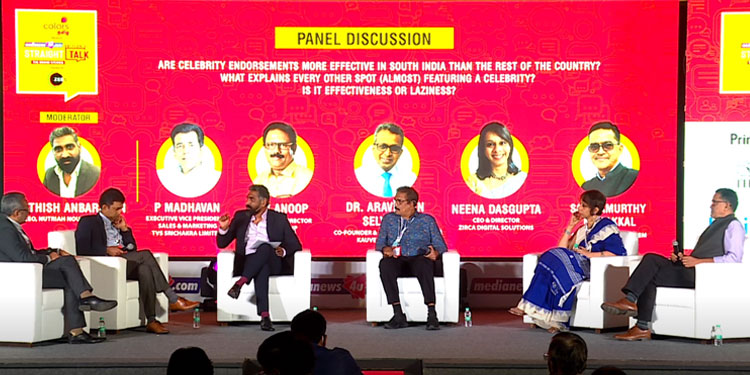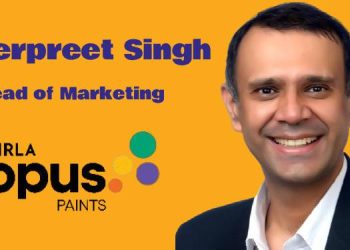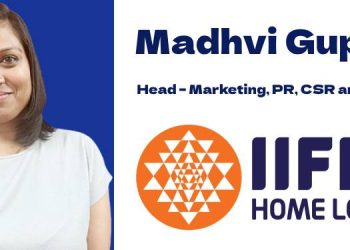Every brand in India needs a personality to speak about them. In some cases, the brand itself or the brand owner himself/herself remains as the face of the brand. The 3rd edition of Medianews4u witnessed a detailed panel discussion on the topic, Are celebrity endorsements more effective in South India than the rest of the country? What explains every other spot (almost) featuring a celebrity? Is it effectiveness or laziness?.
The session was moderated by Sathish Anbarasan, CEO – Nutriah Nourish. The panelists were P.Madhavan, EVP, TVS Eurogrip Tyres, A V Anoop, MD, AVA Group, Aravindhan Selvaraj, Executive Director, Kaveri Group of Hospitals, Nina Das Gupta, CEO, Zirca Digital.
The session kickstarted with an opinion shared by Madhavan who is a firm believer of creative thoughts on celebrity endorsing the brands. He said, “Today roughly 50% of brands have celebrities endorsing it. In the US they have about 20-22% of celebrity endorsements. This states our reliance on celebrities very clearly because they make our life easier. The millennials are willing to give a chance to the brands endorsed by celebrities. But they are also smart in making choices, the moment the content isn’t great they don’t give it a second chance. So, there are both pros and cons to it”.
Anoop continued the discussion explaining how his brand itself is a celebrity by saying, “A product like medimix is more than 50 years old. We started from scratch so didn’t have the money for celebrity endorsements. But the movie ‘Apoorva Raagangal’ gave us the first break. Also, we had first organized film awards as early as 1976 with 50,000 people. Since our brand is national, local celebrities are not enough for us. In fact, many of them became celebrities after working for the promotion of Medimix like Vidya Balan, Trisha, and A R Rehman. So, this brand itself has made many celebrities”.
In a celebrity world, the most dominant ones are actors and sportspeople. But this being a digital era, more and more influencers are coming to us. Neena spoke about the weightage of these two players in lines of endorsing a brand saying, “We need a combination of both. The influencers, micro-influencers, and celebrities have a set of fans following. Influencers can be anyone and TikTok has proven that. I think the purpose of celebrity endorsements is to break away from the clutter and lean on the trust and faith element. Micro-influencers are a great way for brands to engage with the followers of the influencers. The purpose and ROIs of both are absolutely different. On the digital scale, it is absolutely quantifiable. For online, the depth of analytics can be a little sharpened compared to offline. Therefore, it is equally effective, highly efficient but also expensive”.
Contributing to this discussion, Sathyamurthy added, “In my opinion, there are 3 sets of advertisers. One set deserves celebrity and choice, the second deserves a celebrity but doesn’t use a celebrity and the third doesn’t deserve a celebrity but uses a celebrity. Every brand should through research qualitative or quantitative understand what value the celebrity would add to the brand and then make a decision. Many advertisers sign up celebrities but get restless. While some give short-term, others give long-term equity. In digital since metrics are available, we can quickly figure out what additional value they would add for the brand. In South India it is profound, the number of celebrity endorsements seems high but the madness is the same across”.
Dr. Aravind explained why they signed up Dhoni for their Healthcare brand ‘Kaveri Hospitals’ though in the medical field prominence needs to be given for care. He said, “I agree that a hospital should be known for the doctor’s expertise and nurse’s emphatic care. It should be more by word of mouth than a celebrity endorsement. While the hospital is associated only with sick people, a healthcare brand is not just for the diseased. Their focus is awareness and wellness. So, if we stick to a celebrity who has a large following, we will be able to spread the message to more people. Also, the right fit of celebrity for a brand is important and, in many ways, Dhoni fits very well with our journey.”
Adding to his views, Madhavan said, “There is definitely a place for celebrity as long as it marries with the brand’s ethos. Niki and Jordan fit well so it’s good to go. But in some cases, the moment we sign a celebrity we have to start working around the celebrity instead of what we can do for the brand to bring life. Sometimes, celebrities also hinder the creative process. Research also shows that over a period of 10 years if we compare the performance of a brand’s effectiveness it’s the same”.
Addressing the challenge of recall value of a brand when a celebrity endorses too many brands, Nina said, “Interesting part of the digital world is that you don’t follow a single celebrity, you follow multiple influencers. So, as far as an influencer is concerned about the kind of supply & loyalty of a celebrity, the kind parameters change entirely. The number of steps you are walking with your fingers that many influencers we are following and commenting on in a day. Therefore, the control of creativity is different here and it depends on what the brand makes the influencer say for the brand. The creative control is far greater and it is also not as expensive in digital. The limitation gets minimized”.
Giving a quick recap of his journey with medimix, Anoop recalled, “Medimix was initially a prescribed product for skin diseases. So, it was a very difficult task for changing the mindset of people. Moving ahead we changed it as family soap and from skin cure to skincare. I feel even brand owners are celebrities and can endorse their products because they are successful people. For personal care products like toothpaste, hair oil or soap it is very difficult to change the customer into using new brands just because a celebrity is endorsing them. There are no success stories as such”.
Sathyamurthy commented on who demands a celebrity endorsement with his expertise in data as, “If any one of the stakeholders who start the music and the orchestra plays along. But I would like to suggest whoever starts the music back your decisions with data and research as technology is very helpful”.
The concluding remarks of the session included an opinion shared by one of the audiences belonging to the media industry who said, “I agree that one of them starts but usually when national brands approach us for advertising, they immediately choose celebrity endorsement. But we instead suggest investing in an idea that would help them connect with the local people. Hence, the idea is the hero”. Following this Neena added her view as, “I think it’s either the need or the want of the celebrity and after that, it is to justify this need or want”. Finally, Madhavan said, “I would say it depends on where the idea comes from and how they fit happens”.

















